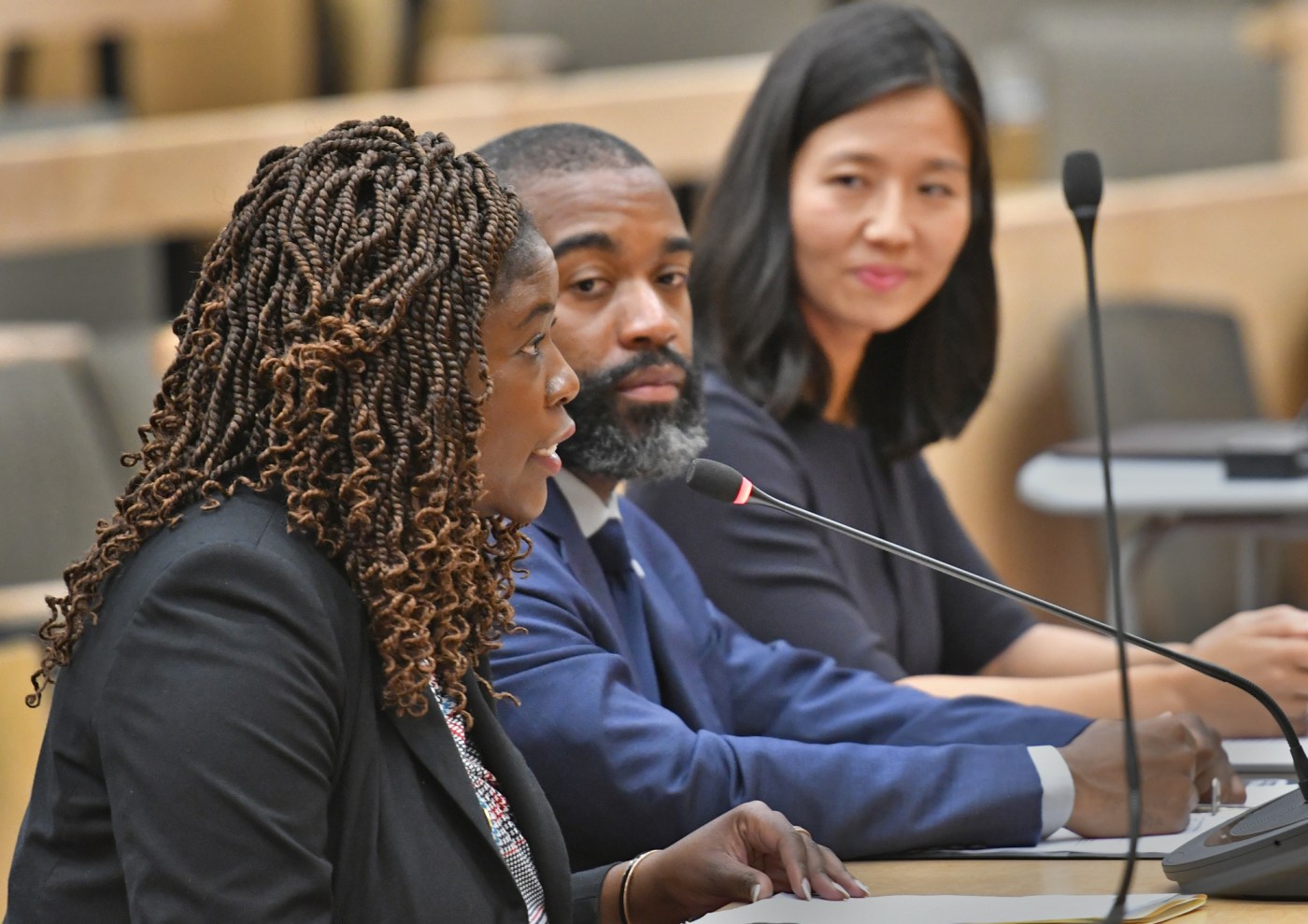
Boston stands to gain 225 new liquor licenses after House, Senate reach deal
Massachusetts House and Senate leadership have reached an agreement on a compromise bill that would add 225 new liquor licenses to the city of Boston over the next three years, many of which would be targeted to minority neighborhoods.
Senate President Pro Tempore William N. Brownsberger, D-Belmont, and House Majority Leader Michael J. Moran, D-Brighton, announced the compromise legislation advanced out of the House and Senate Conference Committee on Tuesday.
“On behalf of our fellow conferees, we are proud to announce that we have reached an agreement on compromise legislation to expand the number of alcohol licenses in the city of Boston, dramatically expanding equity for restaurant owners in neighborhoods across the city, and increasing economic opportunity in communities of color that have been left out for too long,” Brownsberger and Moran said in a joint statement.
If signed into law by Gov. Maura Healey, the bill would deliver Boston its first major expansion of alcohol-serving establishments since 2014, when 70 liquor licenses were added via a city home rule petition.
The legislation had stalled at the end of formal lawmaking about a month ago, after it was approved in different versions by the House and Senate, which favored 205 and 264 liquor licenses, respectively. The city had initially been seeking 250 new non-transferable licenses, through a home petition that was sent to Beacon Hill.
The compromise legislation, which the two lawmakers expect will be sent to the governor’s desk by the end of the week, would add 225 new liquor licenses in Boston over the next three years.
It would target 195 non-transferable licenses to 13 ZIP codes in Roxbury, Dorchester, Mattapan, Hyde Park, Jamaica Plain, Roslindale, Charlestown, East Boston, and the South End, according to the office of state Sen. Liz Miranda, who sponsored the initial Senate bill and represents parts of Roxbury and Dorchester.
Per Conference Committee leadership, the licenses would be distributed as five per year, per ZIP code, for three years, in those neighborhoods. Of the five, three would be for all-alcohol sales and two would be for sales of beer and wine.
“This bill is about providing us with gathering spaces in our own communities, but more so, it is about making strides to close the racial wealth gap that has created stark disparities across the city of Boston, particularly in the neighborhoods of Roxbury, Dorchester, Mattapan, and Hyde Park,” Miranda said in a statement.
That “lack of opportunity,” Miranda said, “has stripped some of our neighborhoods from having successful restaurants and nightlife, a core tenet of thriving cities. Blue Hill Avenue was once a cultural mecca in our city with successful black-owned restaurants and nightlife, and I believe we can be that again.”
Today, liquor licenses are capped at 1,400 in Boston, per state law, according to Miranda’s office, which said the cost of a license on the so-called secondary market can average $600,000, thereby “excluding neighborhood-based startups and entrepreneurs unaffiliated with chains and conglomerates.”
Miranda’s office said the “legislation will expand economic development in our most underserved neighborhoods who’ve seen a pattern of removal of their liquor licenses to downtown and the Seaport.”
“Of the 1,400-plus liquor licenses in the city of Boston, only 2% were held by Black-owned businesses in a city that is nearly 25% Black and over 50% of color,” her office added. “The secondary market, without needed reform, of sit-down restaurant and bar liquor licenses in the city of Boston has perpetuated the growing racial wealth gap.”
The bill would also tether three new all-alcohol licenses to Oak Square and Brighton, and 15 community licenses for sales of all alcoholic beverages to nonprofits, small theaters and outdoor spaces, according to the statement from Brownsberger and Moran.
Twelve of the 225 new licenses would be unrestricted, or transferable between different neighborhoods, the two lawmakers said.
Mayor Michelle Wu thanked “House and Senate leadership and members, especially members of the Boston delegation, for their partnership to advance this important legislation.”
“Each of these licenses represents new life and economic prosperity for an entrepreneur, a business, a neighborhood, and families throughout our city,” the mayor said in a statement. “We look forward to these 225 opportunities to address disparities in our city and strengthen economic opportunity in our neighborhoods.”
Related Articles
In Boston’s hottest race, Suffolk SJC clerk candidates facing heat over integrity issues ahead of primary
Boston Mayor Wu is on vacation, leaving the City Council president in charge
Amid budget crunch, Boston Mayor Wu looking to squeeze higher PILOT payments from tax-exempt nonprofits
Boston’s Caribbean Carnival returns a year after mass shooting: ‘I always feel safe’
Boston City Council may debate residency requirement amid police staffing crunch, but BPD commissioner remains skeptical
State Sen. Nick Collins, whose district includes South Boston and parts of Dorchester, the South End and Roxbury, previously said greater access to liquor licenses could add roughly 30% additional revenue to a restaurant’s bottom line, while citing Senate conversations with owners, and would increase the meals tax in Boston.
“This is going to bring great economic opportunity and equitable economic development to businesses in our city that deserve it,” Collins said during the July 29 Senate session where that chamber’s initial version of the bill was approved.
The legislation was borne out of a home rule petition introduced by Boston City Councilor Brian Worrell, passed by the Council in April 2023, and signed by Mayor Wu, who joined Worrell and co-sponsor, Ruthzee Louijeune, now the Council president, in lobbying for the legislation on Beacon Hill last October.
Its future appeared uncertain, however, after House and Senate leadership were unable to reach a compromise by the end of formal lawmaking. The House and Senate approved different versions of the bill, in late May and two days before the end of formal sessions, respectively.


